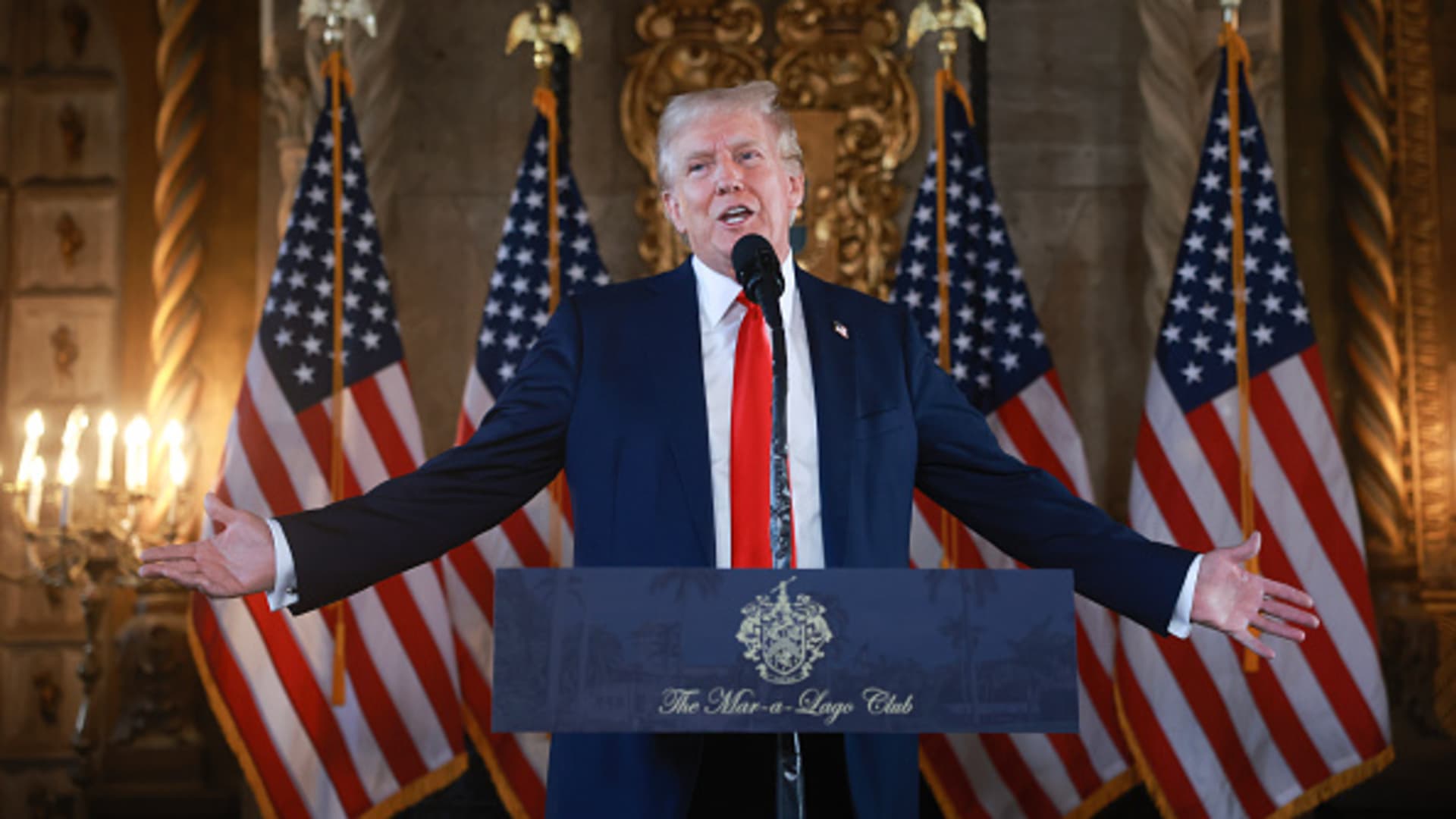Trump says he should get a say on Federal Reserve interest rate decisions
- October 29, 2024
- Category: Blockchain

Republican presidential candidate former President Donald Trump speaks during a press conference at his Mar-a-Lago estate on August 08, 2024, in Palm Beach, Florida.
Joe Raedle | Getty Images
Republican presidential nominee Donald Trump on Thursday said that he should have a voice when the Federal Reserve makes its decisions on interest rates.
“I feel the president should have at least [a] say in there,” Trump said during a news conference at his Mar-a-Lago residence in Florida. “Yeah, I feel that strongly. I think that in my case, I made a lot of money, I was very successful, and I think I have a better instinct than, in many cases, people that would be on the Federal Reserve or the chairman.”
The comments seem to reinforce reporting earlier this year, from The Wall Street Journal and elsewhere, that advisors close to the former president are looking at a host of changes for the central bank should he be elected in November.
Among the ideas being floated are forcing the Fed to consult with the president when making rate decisions. Others include making the central bank run regulatory changes past the White House and using the Treasury Department as an overseer for the Fed’s actions.
While in office from 2017 to 2021, President Trump was a fierce critic of Chair Jerome Powell, whom Trump appointed in 2018.
“Well, look, the Federal Reserve is a very interesting thing. It’s sort of gotten it wrong a lot, and he’s tending to be a little bit later on things,” Trump said of Powell and his colleagues. Powell “gets a little bit too early and a little bit too late. And, you know, that’s very largely a, it’s a gut feeling. I believe it’s really a gut feeling. And I used to have it out with him.”
Fed officials often stress the importance of the central bank’s independence from political influence, and Powell has said repeatedly that criticisms from Trump or other officials don’t weigh into monetary policy decisions.
Trump’s Democrat opponent, Vice President Kamala Harris, believes the Fed should make its decisions independent of presidential influence, an aide to the Democrat told CNBC on Friday.
For his part, Trump insisted that he and Powell “get along fine” though part of the changes his team is looking at include dismissing Powell or at least not reappointing him when his term as chair expires in 2026.
The Fed has undergone criticism for waiting too long to raise rates when inflation started to spike in 2021, and now faces the same scrutiny for not reducing even though inflation rates have moved steadily lower.
Sen. Elizabeth Warren, D-Mass., for instance, has repeatedly called on the Fed to lower rates.
The Fed hiked benchmark interest rates 5.25 percentage points from March 2022-July 2023 in an effort to bring down inflation. Markets widely expect the central bank to start reducing rates in September. Trump generally favors lower interest rates and criticized the Fed frequently for raising in 2018.
Don’t miss these insights from CNBC PRO

